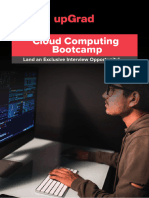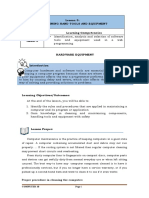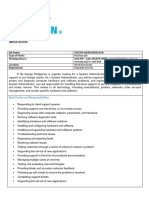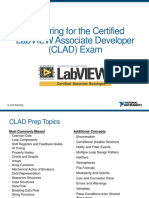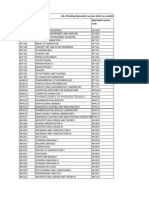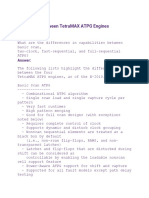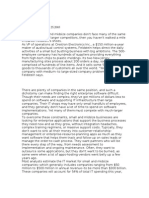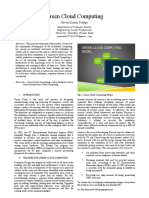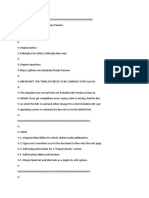0% found this document useful (0 votes)
49 views4 pagesCloud Computing Roadmap
The Cloud Computing Learning Roadmap is a 30-week program aimed at absolute beginners to become job-ready cloud professionals, covering AWS, Azure, and GCP. It includes foundational IT knowledge, hands-on projects, certifications, and job preparation, divided into four phases: Foundations, Core Cloud Platforms, Intermediate Skills and DevOps, and Advanced Skills and Job Prep. The roadmap emphasizes practical skills for entry-level cloud roles and encourages community engagement and portfolio development.
Uploaded by
azeezkamaldeen737Copyright
© © All Rights Reserved
We take content rights seriously. If you suspect this is your content, claim it here.
Available Formats
Download as PDF, TXT or read online on Scribd
0% found this document useful (0 votes)
49 views4 pagesCloud Computing Roadmap
The Cloud Computing Learning Roadmap is a 30-week program aimed at absolute beginners to become job-ready cloud professionals, covering AWS, Azure, and GCP. It includes foundational IT knowledge, hands-on projects, certifications, and job preparation, divided into four phases: Foundations, Core Cloud Platforms, Intermediate Skills and DevOps, and Advanced Skills and Job Prep. The roadmap emphasizes practical skills for entry-level cloud roles and encourages community engagement and portfolio development.
Uploaded by
azeezkamaldeen737Copyright
© © All Rights Reserved
We take content rights seriously. If you suspect this is your content, claim it here.
Available Formats
Download as PDF, TXT or read online on Scribd
/ 4

































